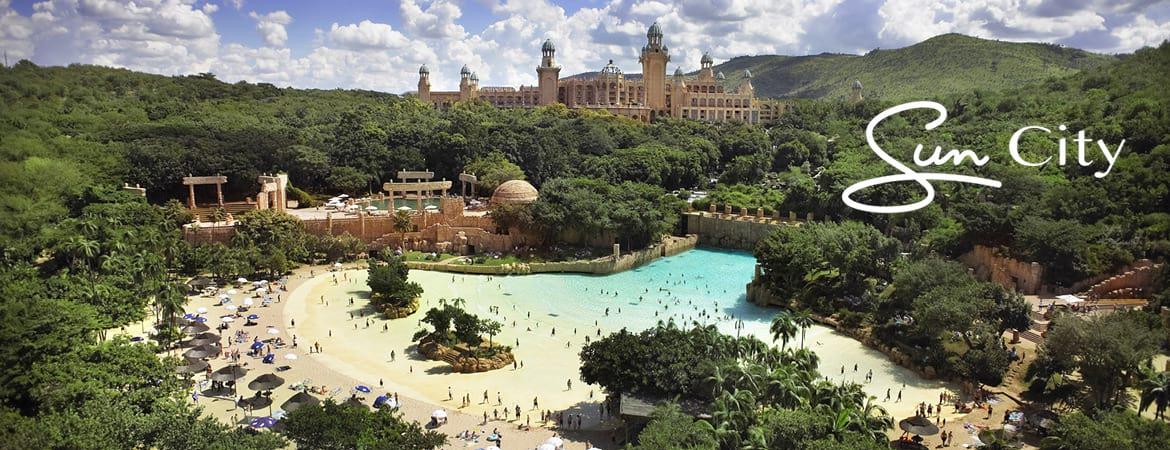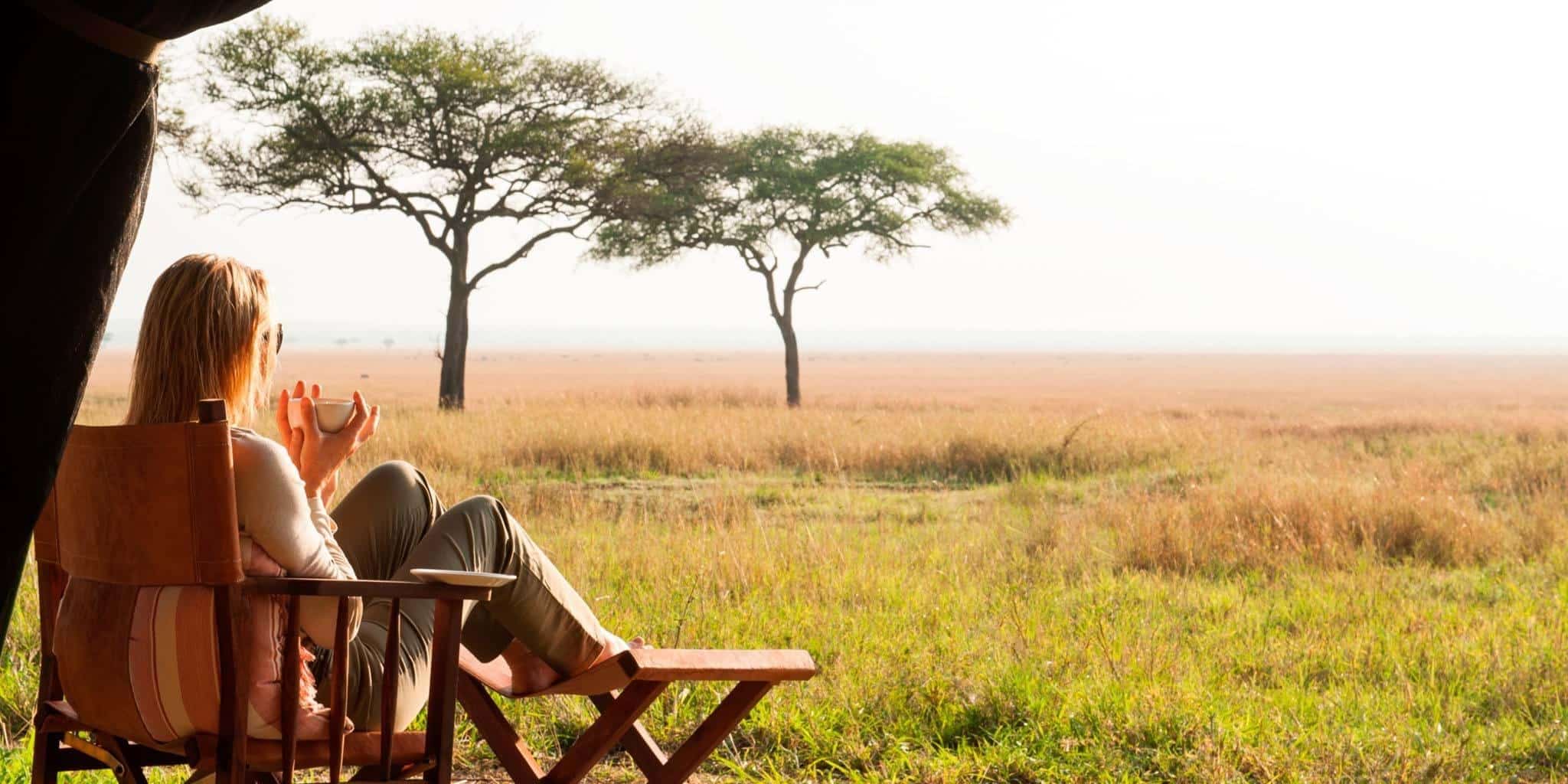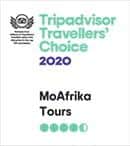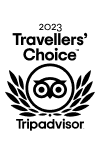Is Soweto a Safe Place to Visit?
Soweto is a safe place to visit for a day tour but with conditions. Don’t venture into the city on your own and go to areas that aren’t safe if you’re unfamiliar with the city and follow all the usual tourist rips to keep safe and avoid falling victim to a crime.
This includes the obvious “don’t flash cash” or wear expensive jewellery, keep cell phones and cameras out of sight and safely tucked into a good travel backpack, avoid going to ‘no-go’ areas and don’t walk around on your own after dark.
South Africa itself has a bad reputation for high levels of violent crime but it’s predominantly localised to high-risk areas. Your trip to South Africa will be fine as long as you know what is safe and not safe to do in the country and places you can visit that are safe.
The same applies to Soweto. It’s a massive city and you get crime hotspots and good areas, as you do in any big city in the world. Stick to the main tourist zone in Soweto and don’t venture too far off the beaten path.
Emergency numbers for Soweto
To report any safety incidents, visitors can call the following numbers:
112 All emergencies from your mobile phone
107 All emergencies from a landline
10111 South African Police Service (SAPS)
10177 South African Fire & Rescue Service
What is 10111?
10111 is the police emergency number in South Africa. It’s the same as the famous 911 in America.
If you are a victim of a crime, you are witness to a serious ongoing crime or your feel your safety is threatened: call 10111.
A Flying Squad patrol vehicle will be assigned to the case and dispatched with all haste.
The safest way to visit Soweto for a day tour
If you are a non-Sowetan resident, book a day tour of Soweto with a reputable tour operator like MoAfrika Tours or go in for the day accompanied by a Sowetan local you can trust. Stick to the popular tourist hubs like Vilakazi Street and avoid areas that are ‘off the beaten track’ non-touristy areas.
MoAfrika Tours has operated day tours to Soweto for over 20 years and our tour guides are born-and-bred Soweteans. An intimate knowledge of safe places to visit and things to do in Soweto means our clients can enjoy a tour of the vibrant city without worrying about their safety.
Soweto has grown from an impoverished cluster of townships to a thriving city but it is still a destination of extreme inequality. Sprawling shanty settlements flank the well-to-do urban areas and there are parts of Soweto that should be avoided if you’re not a local resident.
Soweto suffered the brunt of the brutal apartheid era and the fight for freedom and equality. Today, Soweto is a bustling city that reflects the multi-cultural diversity of our Rainbow Nation. As much as we all love Soweto, we won’t sugarcoat the truth. It’s still a relatively poor city and is plagued with socio-economic issues that can be upsetting for visitors and there is a high level of crime in certain areas.
Fast facts about Soweto
Soweto is an urban precinct that falls under the City of Johannesburg Metropolitan Municipality in Gauteng. It’s a sprawling township that’s grown to become a ‘city within a city’.
Soweto lies on the border of what was once South Africa’s rich gold mining belt. Its proximity to the massive gold mines on the western arm of the Witwatersrand gives it many historic links to the industry and you can still see the large blocks of housing for mineworks in the older parts of Soweto.
Soweto is short for South Western Townships. The plural ‘townships’ is used because the city of Soweto as we know it today is made up of a cluster of historic Black townships. It’s the largest predominantly-Black urban settlement in South Africa.
Soweto was created at the height of the gold mining era in the 1930s by the government of the Transvaal Republic. It was created to separate the largely migrant-worker Black population from the White inhabitants under the notorious apartheid system.
The South-Western townships were originally established after an outbreak of bubonic plague in the inner city slums of Johannesburg. However, under the apartheid government, the townships became a place to displace Blacks who were forcibly removed from the central business district to the barren grass plains on the outskirts of Johannesburg.
Soweto is home to over 1.5 million people, and was famously home to two Nobel Peace Prize winners; the great Nelson Mandela and Archbishop Desmond Tutu.
- The Nobel Peace Prize 1993 was awarded jointly to Nelson Mandela (1918-2013) and Frederik Willem de Klerk (1936-)” for their work for the peaceful termination of the apartheid regime and for laying the foundations for a new democratic South Africa.”
- Archbishop Desmond Tutu is one of South Africa’s most well-known human rights activists. He was awarded the 1984 Nobel Peace Prize for his efforts in resolving and ending apartheid.
Soweto is home to a multi-cultural population. It is made up of 32 different ‘townships’ that originated as separate areas for different Black groups. Naledi, Mapetla, Tladi, Moletsane and Phiri were established for Sotho- and Tswana-speaking people. Chiawelo was for the Tsonga and Venda people, Dlamini Senaoane, Zola, Zondi, Jabulani, Emdeni and White City were for Zulus and Xhosas.
This melting pot of cultures has created a unique Sowetan personality. Afro-American influence runs deep in the vibrant city but has been adapted to the local way of life. Sowetans exude a sense of cosmopolitan sophistication with their own local lingo known as ‘tsotsitaal’. It’s an eclectic mix of several local languages, English and Afrikaans and street slang spoken mainly by the youngsters.
Soweto has the largest hospital in Africa. Chris Hani Baragwanath Hospital has bed capacity for 3 400 patients and covers an area of 70 hectares. It’s named in honour of Chris Hani (1942-1993) who was the leader of the South African Communist Party and chief of staff of uMkhonto we Sizwe, the armed wing of the African National Congress (ANC).
Soweto was the epicenter of the struggle for freedom and equality during the brutal years of apartheid. Many of the most significant political campaigns to overthrow the apartheid state played out in Soweto, including the famous 1976 Soweto Uprising.
The 16 June 1976 protest action was led by an estimated 2 000 Black school children who met with fierce police brutality on what should have been a harmless show of resistance to the use of Afrikaans in schools. Many children were tragically killed that day, including the young Hector Pieterson.
The Soweto Uprising led to countrywide protests and brought the plight of the Black suppressed population of South Africa to the attention of the international community. The tragic events of 16 June 1976 profoundly changed the socio-political landscape and was the turning point in the fight against apartheid. Many of the main attractions in Soweto are memorial sites that pay homage to the brave men and women of Soweto who fought and lost their lives for the struggle.
Soweto’s growth was phenomenal and unplanned. It’s taken many years for the city to catch up in terms of decent housing, upmarket retail outlets, medical facilities and infrastructure but Soweto is evolving into a modern-day city with so much appeal.
Although a lot of progress has been made, Soweto is still a city of extremes; from impoverished informal shantytowns and poor street vendors to exclusive residential suburbs and swanky shopping malls and restaurants. A tour of Soweto exposes the worst and best sides of the city and gives you an incredible insight into its culture, history and modern lifestyle.
Getting to Soweto for a day tour
When you book a tour to Soweto, you’re picked up by a SATSA-accredited tour guide in an air-conditioned Quantum vehicle and taken directly to the main attractions. This is the safest way to explore Soweto, particularly if you are a foreign tourist.
You can visit Soweto for a day tour in your own in a car and you’ll be absolutely fine as long as you use common sense and follow the usual tourist tips to keep safe. Set your GPS for Vilakazi Street because it’s the main entertainment hub and the popular tourist attractions are located close by. The roads and signage into and out of Soweto are excellent.
For a truly uniquely South African experience, you can jump on one of the hundreds of mini-buses that go in and out of Soweto every day and treat yourself to lunch at a popular restaurant on Vilakazi Street.
A last resort is the Metro Rail commuter train that takes Sowetan residents to work and back. The train runs from Park Station on the outskirts of Johannesburg CBD to railway stations in northern and southern Soweto. This mode of transport to visit Soweto is not recommended for tourists who are unaccustomed to the hustle and bustle of the urban commute.
Remember, Soweto is massive and there’s a very good chance you will get lost if you set off on your own for the first time. Book a tour of Soweto with MoAfrika Tours to familiarise yourself with the city and if you love it, you can always come back with family and friends in your own car.
Eating out in Soweto on a day tour
When in Soweto, eat like the Soweteans… but be careful. Enjoy the taste of an authentic African meal and home-brewed beverage but don’t let it come back to haunt you later with an upset stomach or worse. Unsanitary conditions in some of the local street taverns could make you very sick with Salmonella poisoning, listeria or Hepatitis A.
The best fun you can have in Soweto is visiting a popular street eatery for ‘shisa nyama’. This is a braai or barbecue Soweto style. Shisa nyama is a Zulu phrase that literally means ‘burn meat’.
You’ll have the best shisa nyama meal at one of the many butchery-turned-restaurants. Patrons pick their own steak, chops or BBQ sausage and take it to the outside fires to be cooked. Enjoy it with the local Sowetan brew and a side dish of traditional relish, spicy chakalaka and fluffy pap (maize meal) or rolls.
To be on the safe side health wise, we recommend you choose one of the better quality restaurants on Vilakazi Street that caters for tourists. This is the safest option because these restaurants prepare and store their food in sanitary conditions and there’s no risk of getting sick from what you eat.
Soweto nightlife
Many people ask the question, “is it safe to go out at night in Soweto?”
Yes it is and there are a host of brilliant clubs and restaurants in Soweto that are hugely popular with locals and outside visitors. However, as you would in any large city in the rest of the world, be very careful you don’t fall victim to a crime.
The biggest problem is drink spiking, where drugs or alcohol is added to someone’s drink without their permission with the intent of doing something nasty. This could be anything from rape and robbery to kidnapping.
If you’re a party person and want to experience Soweto’s vibrant night life at one of the many nightclubs on Vilakazi Street, follow the same rules and common sense you would back home.
Never walk around on your own after dark, buy your own drinks, never accept a drink from a stranger and never let your drink out of your sight. Party with friends you trust and if you’re on your own, be very careful who you make friends with because not everyone can be trusted.
As a rule, don’t overindulge. In other words, don’t get so drunk that you lose your inhibitions or make poor decisions.
Tropical diseases
Malaria
Soweto is located in a malaria-free region in South Africa. However, mosquitoes can be a pesky nuisance when they’re most active between dusk and dawn so carry a good insect repellent in your bag.
It’s not necessary to take anti-malaria tablets if you’re only visiting Johannesburg but they are required if your holiday includes a Big 5 safari tour to Kruger National Park or any of the private game reserves in the northern parts of South Africa.
Tropical diseases
South Africa itself has an impressive list of prevalent tropical diseases such as the hepatitis strains, tuberculosis, cholera, bilharzia and diphtheria. However, it’s extremely unlikely that you’ll contract any of these if you’re staying in quality accommodation and eating out in decent restaurants.
There are no compulsory vaccinations for South Africa that are required for travellers from the United States, United Kingdom and Western Europe. However, a yellow fever vaccination certificate may be required for travellers coming from certain endemic zones in Africa and the Americas.
Travellers on scheduled airlines whose flights have originated outside the areas regarded as infected (or who are only in transit through these areas) are not required to possess a yellow fever vaccination certificate. If the flight originated from within a yellow fever endemic area, a certificate may then be required.
It’s recommended that you see your doctor or a travel clinic before leaving for your holiday in South Africa for advice on vaccinations you need. International tourists are advised to take out travel insurance that includes medical cover. The state-run hospitals in South Africa are not up to Western standards and if you fall ill or need urgent medical treatment, you’ll be taken to a private medical hospital.
For more information on vaccination requirements for South Africa, visit The Centres for Disease Control and Prevention.
Aids and HIV
South Africa has the biggest HIV epidemic in the world, with an estimated 8 million people living with HIV in the country. HIV prevalence among the general population is high at 20.4%.
South Africa has made huge improvements in getting people to test for HIV in recent years. It has now met the first of the 90-90-90 targets, with 90% of people living with HIV aware of their status in 2018.
Soweto is no exception when it comes to playing it safe as far as Aids is concerned. Practices safe sex and always use condoms.
Sightseeing in Soweto
Book day tours to Soweto with a reputable tour operator.
This is not a marketing line but wise advice, considering the fact that tour operators like MoAfrika Tours make the safety of their clients a priority.
Firstly, the popular tour operators who conduct day tours to Soweto know the places they take visitors to very well and know where it is safe to go and what is safe to do.
Secondly, there is safety in numbers. If you’re travelling solo or as a couple, you’re better off booking a day tour with a group of travellers.
Car hire safety
Car hire is very reasonable in South Africa for overseas visitors and having your own car gives you the freedom to come and go as you please. For this reason, many people visiting South Africa opt to hire a car from a reputable car hire company and enjoy a self-drive trip into Soweto.
This is perfectly fine as an alternative to joining a tour group but make safety a priority. Road safety is a problem in South Africa and car accidents tragically claim many innocent lives. Stick to the main highways and main roads and avoid driving in areas with poor lighting. Keep to the speed limit and be aware of other drivers so you can take corrective action quickly.
The top tips for driving around Soweto in a hired car are:
- Keep the windows shut, particularly driving through built-up areas where you’re stopping at traffic lights and intersections. Hire a car with air-conditioning so you don’t need to wind down the windows on hot days.
- Keep the doors locked. Do this as soon as you get into the car and make it a habit. This is to avoid petty criminals at traffic lights opening one of the car doors and grabbing valuable items.
- Keep valuable items out of sight. Preferably, hire a rented car with a proper boot. This is so you can put items such as your camera and laptop in the boot while you’re driving. You don’t want to keep them on the seat because this makes you a target for a ‘smash and grab’.
- Top up your fuel tank before driving to Soweto. Don’t risk breaking down on the side of the road because you’ve run out of petrol. Play it safe and fill up before driving off for an outing. That way, if you misjudge the distance, you won’t have a problem with an empty fuel tank.
- Know where you are going. Hire a car with a GPS device or download an app like WAZE that you can use for directions to the places you are visiting. Before you leave your hotel, put Vilakazi Street into the GPS app and familiarise yourself with the route.
- Avoid travelling after dark. Plan your day so you’re back at your hotel before or just after the sun goes down. If you plan to go out for dinner in Soweto, choose one in the popular Vilakazi Street which is busy and well-lit.
- Keep important numbers on your phone that you can call if you get into trouble, such as a breakdown service or the local police number. Car rentals should provide you with the names of tow companies that clients are allowed to use. Don’t hesitate to contact the car rental company if you’re concerned that the car you’ve hired has a mechanical fault.
Uber safety
Uber is available in Johannesburg and is an option if you want to drive into Soweto on your own with your family or friends. Uber is the safest mode of transport for tourists in South Africa who don’t want to hire a car. However, it’s your responsibility to use the international driving service with caution.
Uber prices are quite reasonable for foreigners but you might find them a bit hefty in peak holiday periods. Ask the Uber driver to quote you on the estimated cost of the drive before you take off. Uber uses a ‘dynamic pricing’ model during busy seasons which go up heavily when the demand is high and are reduced massively when demand is low.
Uber introduced a call-line to an incident response team for all Uber passengers in South Africa. The call-line links you to Uber’s Global Incident Response Team and they’ll get in touch immediately with the police or response team if you find yourself in trouble on an Uber ride.
It’s wise to have this help-line number in your phone on your Uber app to call in any emergency. If you feel uneasy when an Uber driver pulls up, don’t get in the vehicle. Always check the driver matches with the driver’s details sent to you via the Uber app.
How to access customer support line
- Open the Uber app
- Select the menu button (top left-hand corner)
- Select HELP
- Select CALL SUPPORT
- You’ll then be connected to the support team
Can’t access the Uber app?
If you’re a driver looking to get in touch, please dial 0800172957.
Riders can access the support line by dialing 0800172956.
In an emergency where a crime has been committed, call 10111.
or use the in-app emergency button which connects you to Uber’s third-party security providers.
How to keep safe in Soweto
The most important safety tip is ‘don’t flash cash’ or look like a rich tourist when you’re out and about in Soweto. Tourists stand out like beacons to robbers at the best of times and if you’re ‘flashing your cash’ and expensive valuables, you put a target on your back.
Visit the main tourist attractions with just enough cash to pay for entrance fees, souvenirs and snacks and refreshments and use a banking card for other purchases.
Like any country in the world, it’s a good idea to use a separate travel banking card. This should have enough money transferred into it for daily activities and purchases. If it’s swiped or skimmed, you won’t lose too much money.
Keep your wallet in a handbag or travel backpack that you can keep close to your body and won’t be pick-pocketed. Tips like ‘don’t hang your handbag over the back of your chair’ are common sense, regardless if you’re on at a restaurant in Soweto or going out in your hometown.
Just like cash, don’t flash your expensive jewellery and valuable items when travelling around Cape Town. Leave your expensive jewelry at home and keep your cell phone, laptop and big camera out of sight in your backpack.
IN SUMMARY
Soweto is one of South Africa’s most popular destinations for an exciting day tour. Between 250 000 and 300 000 tourists visit Soweto every year and enjoy the incredible opportunity to experience the city’s rich cultural heritage.
Day tours to Soweto are safe, particularly if you book through a reputable tour operator like MoAfrika Tours and explore the city in a group. However, just like any big city in the world, make your safety a priority and follow the usual travel tips to prevent falling victim to a crime.










